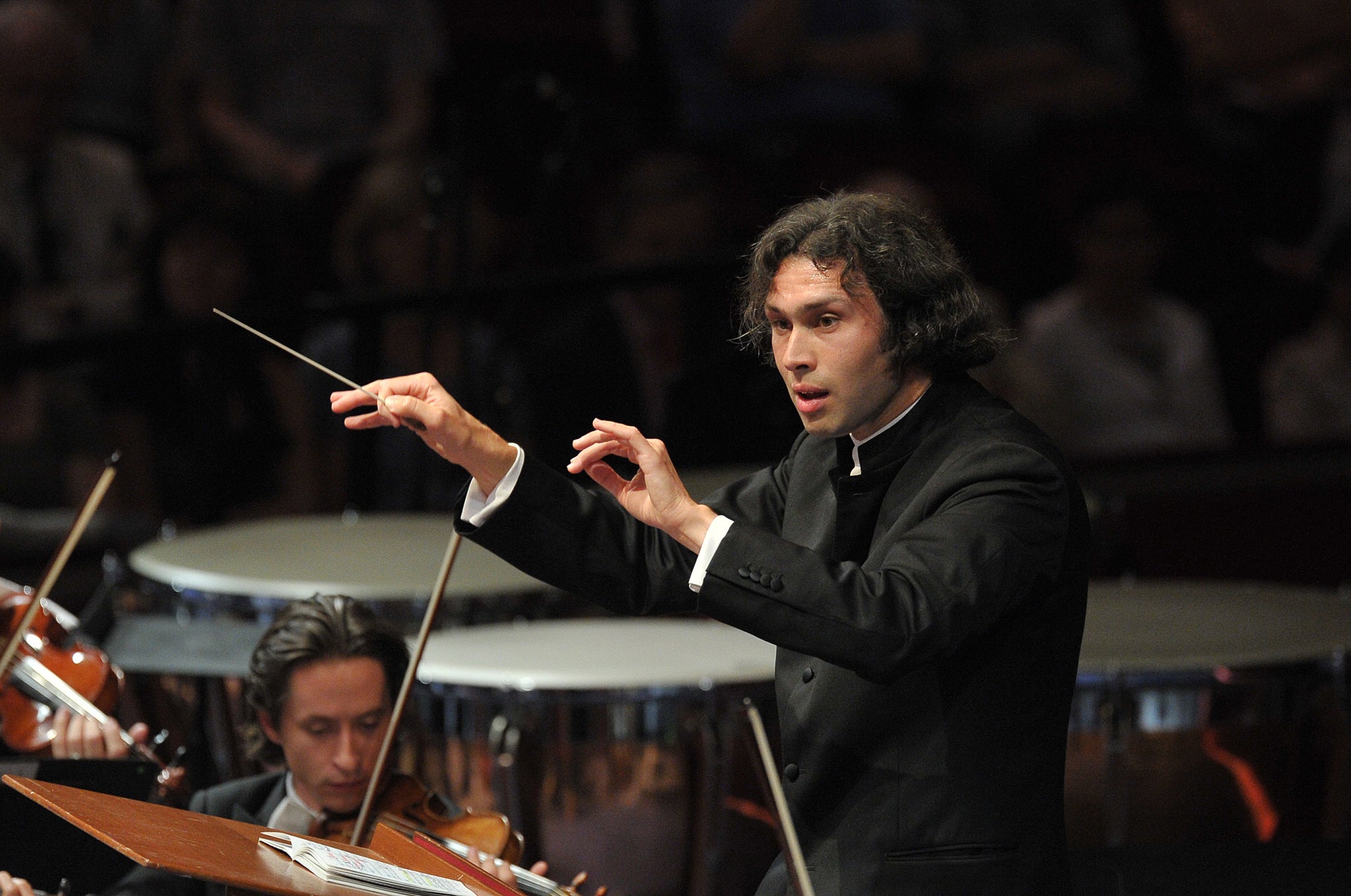Jurowski, Hayward, Ebrahim, LPO, Royal Festival Hall, London

Introducing the first of two concerts celebrating the indomitability of the human spirit, Vladimir Jurowski enjoined us to listen to its five works as five movements of a single one.
After the overture to Beethoven’s ‘Fidelio’ would come two works by Schoenberg and one by his son-in-law Luigi Nono, with Beethoven’s Fifth Symphony as the finale. There would be internal echoes, with Schoenberg quoting Beethoven, and Nono quoting both of them, but the polemical thrust of the evening would lie in the fact that though Beethoven’s message of political liberation was issued two centuries ago, the world hadn’t changed for the better in the intervening time.
The London Philharmonic launched into ‘Fidelio’ with an exceptionally bright sound, letting the work’s combative optimism carry it along. Then followed Schoenberg’s ‘Ode to Napoleon Bonaparte’ with Robert Hayward as the narrator and Catherine Edwards at the piano.
The Ode was Byron’s jubilant diatribe on Napoleon’s fall, and could not by any stretch be called great poetry: ‘The Desolator desolate!/ The Victor overthrown!/ The Arbiter of others’ fate/ A Supplicant for his own!’
The self-exiled Schoenberg had been commissioned to write this in the dark days of 1942, and his chosen mode for the narrator was Sprechgesang: while Edwards rapped out aggressive riffs on the piano, and the orchestra vamped things up with atonal flurries, Hayward did everything humanly possible to breathe life into his text; if the work remained risible, the blame lay with composer and poet.
Five years later Schoenberg was commissioned to write a piece honouring the victims of the Warsaw ghetto. ‘A Survivor from Warsaw’, which resulted, was a seven-minute masterpiece using the composer’s own (blessedly unliterary) text. Narrated again by Hayward but this time with palpable passion, and bolstered by the male voices of the LPO choir, Schoenberg’s achingly spare symbiosis of voice and orchestra emerged with the most intense expressiveness.
Luigi Nono’s ‘Julius Fucik’ honoured one of the Nazis’ heroic Czech victims in a piece based on his salvaged diaries which, in Annabel Arden’s semi-staging, and with Omar Ebrahim as the protagonist, tore at the heart. Nono’s - and Arden’s – extreme economy of means permitted extreme emotional concentration, as the prisoner – symbolically menaced by percussion, then buoyed up by woodwind reflecting his faith in humanity - endured cruel privations prior to his execution: the final segue back into Beethoven worked perfectly.
Join our commenting forum
Join thought-provoking conversations, follow other Independent readers and see their replies
Comments